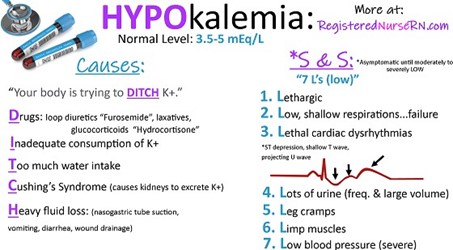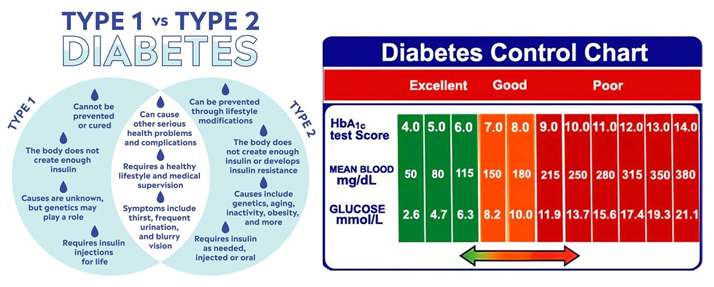A nurse is preparing to administer oral potassium to a client who has a potassium level of 5.5 mEq/L. Which of the following actions should the nurse take first?
Withhold the medication.
Administer a hypertonic solution.
Repeat the potassium level.
Monitor for paresthesia.
The Correct Answer is C
Before administering any medication, the nurse should confirm the potassium level to ensure that it is still elevated and needs to be treated. Potassium levels can fluctuate, so repeating the test will ensure that the client receives the appropriate treatment.
Options (a) Withhold the medication and (b) Administering a hypertonic solution may be appropriate interventions depending on the client's condition, but confirming the potassium level is the first step.
Option (d) Monitoring for paresthesia is important but not the first action that the nurse should take.
Nursing Test Bank
Naxlex Comprehensive Predictor Exams
Related Questions
Correct Answer is B
Explanation
Furosemide is a loop diuretic that works by blocking the reabsorption of sodium and chloride in the ascending loop of Henle in the kidney, leading to increased urine output. However, this medication can also cause potassium loss through increased urinary excretion, which can lead to hypokalemia (low potassium level). Hypokalemia can cause confusion, weakness, and other neurological symptoms.
The normal range for serum potassium is 3.5 to 5.0 mEq/L. A potassium level of 2.9 mEq/L is below the normal range and is considered hypokalemic. Therefore, the nurse should correlate the client's confusion with the low potassium level and notify the healthcare provider to adjust the medication or provide potassium supplements if indicated.


Correct Answer is D
Explanation
The patient has been diagnosed with type 2 diabetes and reports following a reduced-calorie diet but has not lost any weight. This suggests that the patient may not be following the diet as prescribed or may have other factors affecting their blood glucose levels. Additionally, the patient did not bring their glucose monitoring record, which is an important tool for assessing blood glucose control over time.
In this situation, obtaining a fasting blood glucose level or an oral glucose tolerance test may provide a snapshot of the patient's blood glucose level at the time of the test, but these tests do not provide information about blood glucose control over the past few months. A urine dipstick for glucose is a less reliable method for assessing blood glucose control and is not recommended for routine monitoring.
Therefore, obtaining a glycosylated hemoglobin (HbA1c) level is the most appropriate test in this situation. HbA1c reflects the average blood glucose level over the past 2-3 months and is recommended for routine monitoring of blood glucose control in patients with diabetes. This test can provide valuable information about the effectiveness of the patient's diet and any other interventions aimed at controlling their blood glucose levels.
Whether you are a student looking to ace your exams or a practicing nurse seeking to enhance your expertise , our nursing education contents will empower you with the confidence and competence to make a difference in the lives of patients and become a respected leader in the healthcare field.
Visit Naxlex, invest in your future and unlock endless possibilities with our unparalleled nursing education contents today
Report Wrong Answer on the Current Question
Do you disagree with the answer? If yes, what is your expected answer? Explain.
Kindly be descriptive with the issue you are facing.

